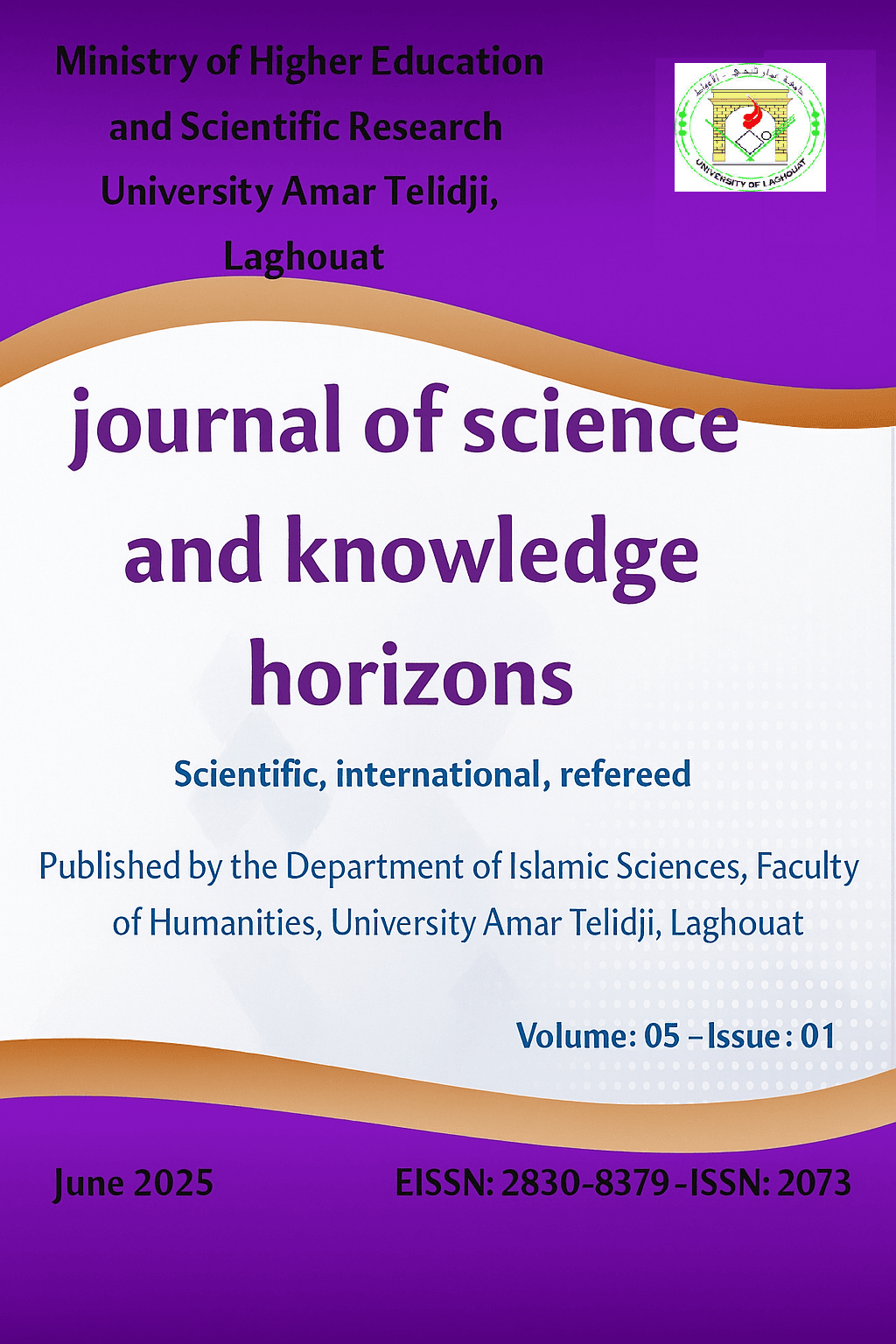Algerian Teachers’ Perceptions of Learning-Oriented Assessment: Challenges and Insights Post-Integrated Content and Language Professional Development Program
Abstract
The integration of innovative assessment practices, such as Learning Oriented Assessment (LOA), into higher education has increasingly become a focal point, capturing the attention of educators worldwide. In Algeria, however, teachers still face challenges in applying LOA, even after taking part in training programs meant to improve their teaching methods. This small-scale exploratory study investigates how Algerian teachers perceive their teaching practices following their participation in the intensive six-month Integrated Content and Language (ICL) professional development course in 2022.It is also an attempt to explore the challenges encountered with the adoption of Learning-Oriented Assessment approach in Higher Education. The study used a qualitative approach and gathered data through a Google Forms questionnaire sent to teachers who took part in the ICL program. The results show that most of them have started using LOA in their teaching and have noticed clear benefits for their students. However, a number of challenges were identified by the participants and were grouped into three major areas: (a) resistance to change due to being reluctant to move from the traditional ways of assessment to LOA; (b) time constraint, since LOA requires much time in planning and giving feedback; and (c) difficulties in designing effective rubrics for assessment. This study calls for further research to be conducted given that the implementation of LOA is still in progress and it is too early to form definitive conclusions at this stage.
Downloads
References
Carless, D. (2015). Exploring learning-oriented processes. Springer Journal, 69 (6), 963–976.
Carrol, B. A. (2017). A learning-oriented assessment perspective on scenario-based assessment. Teachers College, Columbia University Working Papers in Applied Linguistics & TESOL, 17(2), 28–35.
Dean, N. C. (2014). The interactional dimension of LOA: Within and beyond the classroom. Teachers College, Columbia University Working Papers in TESOL & Applied Linguistics, 14(2), 50–52.
Er, H.K. & Farhady, H. (2023). The effects of learning-oriented assessment on academic writing. International Journal of Assessment Tools in Education, 10, (2), 197–217
Harlen, W., & James, M. (1997). Assessment and Learning: Differences and relationships between formative and summative assessment. Assessment in Education: Principles, Policy & Practice, 4(3), 365-379.
Havener, M.S. (2016). Learning-oriented assessment: The affective dimension. Teachers College, Columbia University Working Papers in TESOL & Applied Linguistics, 14(2), 53–55.
Konstantinidis, A. (2012). Implementing learning-oriented assessment in an e-twinning online course for Greek teachers. MERLOT Journal of Online Learning and Teaching, 8 (1).
Jalilzadeh, K., & Coombe, C. (2023). Constraints in employing learning-oriented.assessment in EFL classrooms: teachers’perceptions. Language Testing in Asia 2023, 13(1):7
Jones, N., & Saville, N. (2016). Learning-Oriented Assessment. Cambridge University Press
Pekrun, R. (2014). Emotions and Learning: The role of affective factors in the learning process. In D.L. McInerey & S. Van Etten (Eds.), Research on sociocultural influence on motivation and learning (pp. 137-158). Springer
-Purpura, J. E., & Turner, C. E. (2013). Learning-oriented assessment in classrooms: a place where SLA, interaction, and language assessment interface. [Conference presentation]. ILTA/AAAL joint symposium on “LOA in Classrooms.”
Purpura, J. E., & Turner, C. E. (2014). A Learning-Oriented Assessment Approach to Understanding the Complexities of Classroom-based Language Assessment. Presentation at the roundtable on learning-oriented assessment in language classrooms and large-scale contexts. Teachers College, Columbia University, New York.
Purpura, J. E. (2022). Using a learning-oriented assessment framework to reimagine classroom assessments: [Webinar]. Retrieved from : https://www.youtube.com/watch?v=S5hO4sP5XxI
Schunk, D. H., Pintrich, P. R., & Meece, J. L. (2008). Motivation in education: Theory, research, and applications (3rd ed.) Pearson Education, Inc.
Smith, M.R. (2014). Learning-oriented assessment: The contextual dimension. Teachers College, Columbia University Working Papers in TESOL & Applied Linguistics,14 (2), 41-43
Voss, E. (2022, April 22). The supporting role of technology in learning-oriented assessment. [Conference presentation]Teachers College, Columbia University. ALTE Conference, Paris, France.
Zeng, W., Huang, F., & Yu, L. (2018). Towards a learning-oriented assessment to improve students’ learning- a critical review of literature. Educational Assessment, Evaluation and Accountability, 30, 211–250

This work is licensed under a Creative Commons Attribution-NonCommercial 4.0 International License.






